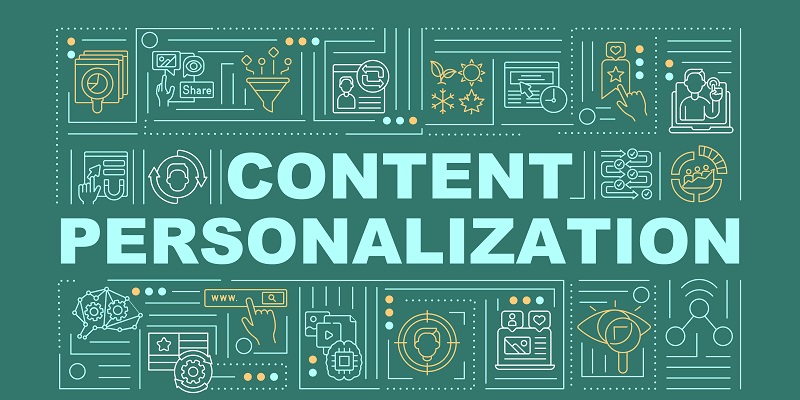In today’s digital era, marketers are struggling with how to make themselves stand out in a crowded and noisy marketplace. One effective solution to this challenge is personalized content marketing. Personalization is a technique that allows marketers to tailor their message to specific segments of their audience based on the insights they have collected about them. In this article, we will explore the reasons why personalized content is key to effective marketing, the strategies behind delivering personalized content, the advantages of personalization, the challenges of scaling personalized content, and finally, the importance of structure to realizing the full potential of personalization.
The importance of targeted and relevant content for effective marketing cannot be overstated. The traditional marketing model, which casts a wide net to attract any customer, is no longer effective. Today, consumers are inundated with a constant stream of advertisements, promotions, and content. In fact, research shows that people receive up to 5,000 ads a day! It has become crucial to deliver targeted, relevant, and personalized content that resonates with the audience. Personalized content not only catches the consumer’s eye but also creates a sense of connection with the brand. This connection, in turn, leads to customer loyalty and advocacy.
Strategies for Delivering Personalized Content Throughout the Customer Lifecycle
To achieve effective personalized content, you should start by segmenting your audiences as accurately as possible. Segmentation enables marketers to group customers with similar needs, interests, and behaviors, creating more relevant messages and effective campaigns. Additionally, the quality of customer data is the foundation of personalized marketing. Therefore, investing in Customer Relationship Management (CRM) systems or inter-organizational data repositories is crucial. A good customer database provides insights that can help identify customer needs, wants, and expectations. Finally, combining customer data with in-depth analysis of social media and other online behaviors offers real-time tracking that can aid personalization.
Advantages of Personalized Content in Cutting Through the Noise and Creating Impact
In the digital age, there is a continuous influx of irrelevant information and ads that are not tailored to the intended audience. Personalized content marketing solves this problem by tailoring content directly to the consumer’s needs. It significantly increases the chances of the brand resonating with the consumer as it is more likely to gain recognition and positive associations. Personalized content can also create an emotional response that leads to engagement, customer loyalty, and brand advocacy.
Segmenting Audiences for Effective Personalization
To deliver personalized content, it is essential to understand who the audiences are. Segmentation is key to this understanding as it enables marketers to group customers who share particular characteristics or behaviors. This grouping makes it easier to tailor the message and content to the specific needs of the customer group, which ultimately leads to better engagement, conversions, and customer lifetime value.
The Challenge of Poor-Quality Data in Personalizing Content
Although segmentation is a vital first step for personalization, the quality of customer data plays a significant role in personalized marketing. One of the main challenges of personalizing content is poor data quality. This problem may occur when the data is incomplete, outdated, or incorrect. When data is poor, companies can expect issues with conversions and customer retention. Therefore, companies should invest in good data management systems, data analysis, and data enhancement systems to ensure high-quality data.
Importance of a Robust Inter-Organizational Data Repository or CRM System for Control Mechanisms:
A robust inter-organizational data repository or a CRM system with definitive control mechanisms in place is key to effective personalization. Companies should maintain centralized customer repositories for data management, analysis, and insights applications. These repositories offer control over data quality, customer data access, and customer contact management.
Real-time tracking of user intent and market trends for personalized content is crucial. By tracing audiences across channels, tracking customer insights, and learning market trends in real-time, companies can consistently personalize content to fit customer needs. This ensures that personalized content remains relevant and up-to-date.
The Challenge of Scalability in Personalizing Content for Large Customer Databases
Companies face a critical challenge of scalability when personalizing content for large customer datasets. The costs associated with scaling increase as companies grow and collect more customer data. Companies need to invest in the right processes, procedures, and technology to effectively manage and scale personalized content.
Importance of Having the Right Processes and Procedures to Achieve the Full Potential of Personalization
Good processes and procedures ensure the success of personalization. These include data quality management, customer segmentation, data analysis, and data personalization. Having the right personalization team in place is also essential, as they will continuously monitor data quality, customer data access, and contact management and adjust the data quality standards as needed.
In conclusion, personalized content marketing is a strategy that can cut through the noise, create engagement, gain customer loyalty, and influence advocacy. It is no secret that delivering personalized content throughout the customer lifecycle results in increased customer lifetime value. However, the challenge of bad quality data and scalability presents obstacles to success. By investing in a robust, inter-organizational data repository, customer segmentation, and real-time tracking capabilities, companies can deliver fresh and relevant personalized content that resonates with target audiences. Above all, personalization is a strategy that cannot fail, as long as your content allows the target audience to recognize, remember, and recommend your business.

